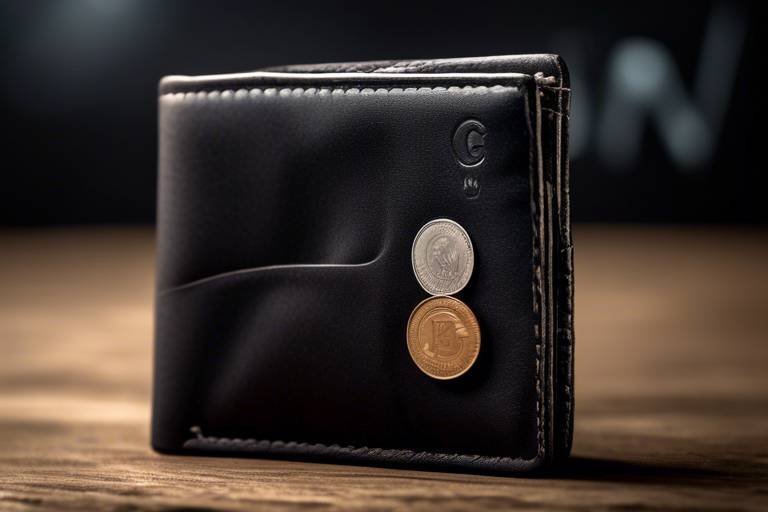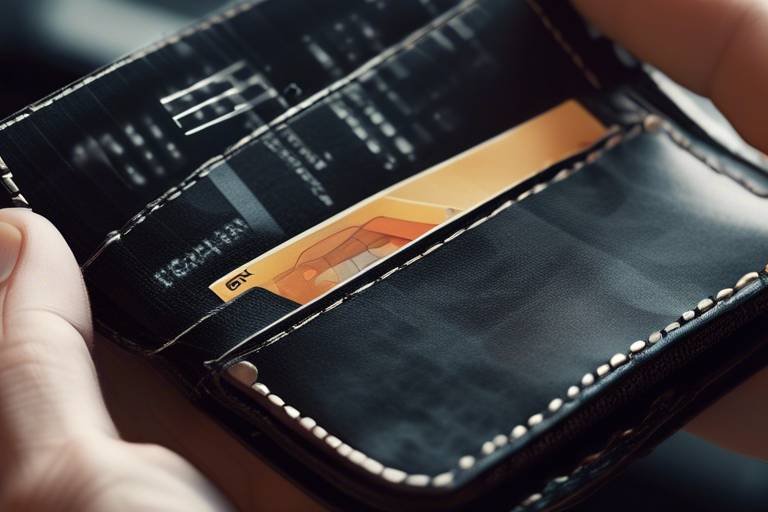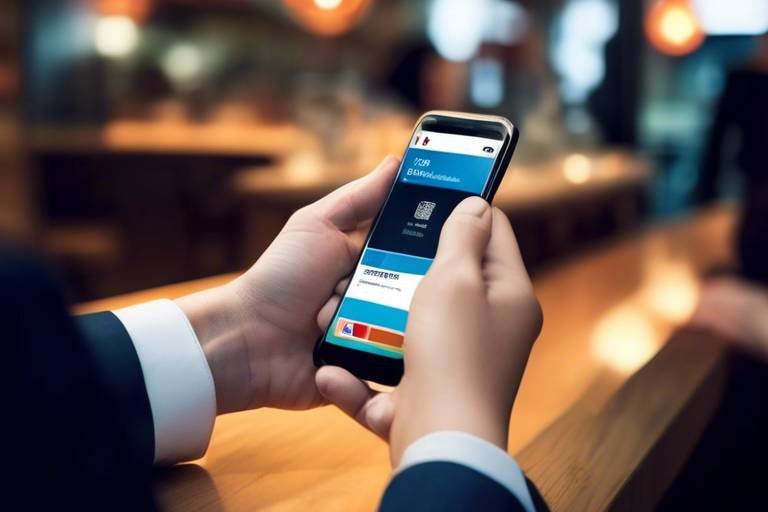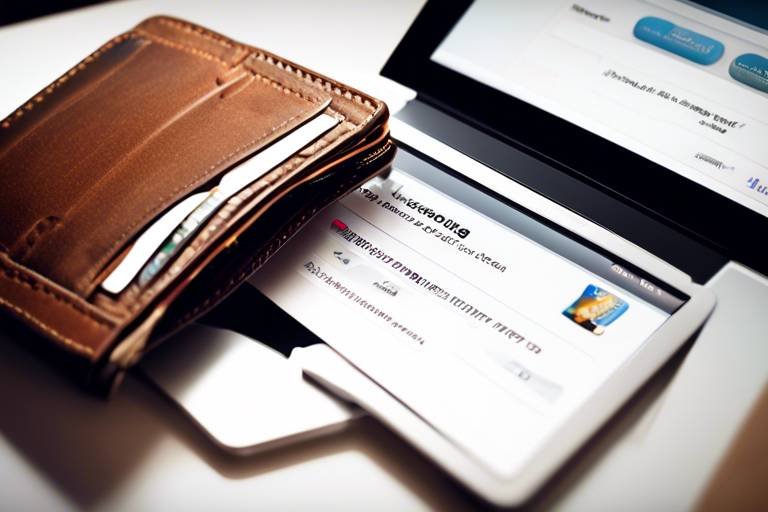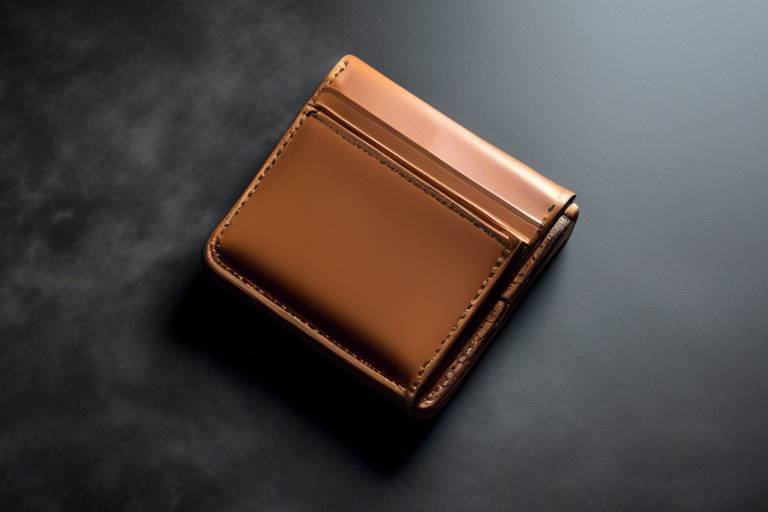Understanding Wallet Compatibility with Different Coins
In the ever-evolving world of cryptocurrency, one of the most crucial factors that every investor must consider is wallet compatibility. Just like you wouldn't want to use the wrong charger for your smartphone, using a wallet that doesn't support your chosen cryptocurrency can lead to a myriad of complications. Imagine trying to fit a square peg into a round hole; that's exactly what happens when your wallet isn't compatible with the coins you own. This article delves into the importance of understanding how different wallets work with various cryptocurrencies, highlighting the implications for effectively managing your digital assets.
When it comes to cryptocurrencies, not all wallets are created equal. Some are specifically tailored to support certain coins, while others are more versatile, accommodating a range of digital currencies. This diversity can be likened to a toolbox: some tools are specialized for specific tasks, while others can handle multiple jobs. As you navigate your crypto journey, knowing which wallet aligns with your investment strategy can save you time, money, and a lot of headaches.
Moreover, the implications of wallet compatibility extend beyond mere convenience. If you choose a wallet that doesn’t support your coins, you may find yourself unable to access your funds or even facing potential losses. This is why understanding wallet compatibility isn’t just a technical concern; it’s a fundamental aspect of safeguarding your investments. So, whether you're a seasoned trader or a newcomer to the crypto scene, grasping the nuances of wallet compatibility is essential for navigating this digital frontier.
In the following sections, we will explore the different types of wallets available, the pros and cons of coin-specific versus multi-currency wallets, and the security features you should look for to protect your assets. By the end of this article, you’ll have a comprehensive understanding of how to choose the right wallet for your cryptocurrency needs, ensuring that your investments are both secure and accessible.
There are several types of wallets available for cryptocurrency storage, each with unique features and compatibility. Understanding these types helps users choose the right wallet for their needs. From hardware wallets that store your coins offline to software wallets that operate online, each type has its own set of advantages and drawbacks. For instance, while hardware wallets are known for their enhanced security, software wallets offer greater convenience for frequent transactions.
Some wallets are designed to support specific cryptocurrencies. This section will discuss the advantages and disadvantages of using coin-specific wallets versus multi-currency wallets for managing digital assets. Coin-specific wallets can provide better integration and features tailored to the particular coin, but they may limit your ability to diversify your portfolio within a single application.
Multi-currency wallets offer flexibility by supporting various cryptocurrencies. This section explores how they work and their benefits for users who hold multiple digital assets. These wallets allow you to manage different coins in one place, making it easier to track your investments and execute trades without switching between different platforms.
Security is crucial when choosing a multi-currency wallet. This subsection highlights the key security features to look for to protect your investments effectively. Look for wallets that offer two-factor authentication, encryption, and backup options to ensure that your assets are safeguarded against potential threats.
User experience can vary significantly between multi-currency wallets. This subsection examines factors that contribute to an intuitive and user-friendly interface for managing multiple coins. A wallet should be easy to navigate, with clear options for sending and receiving funds, as well as accessing transaction history.
Hardware wallets provide a secure option for storing cryptocurrencies offline. This section analyzes their compatibility with different coins and why they are favored by long-term investors. Because they store your private keys offline, hardware wallets are less susceptible to hacking, making them an ideal choice for those looking to hold their investments for the long haul.
Compatibility issues can arise when using wallets with certain cryptocurrencies. This section discusses common problems users face and how to avoid them to ensure smooth transactions. One common issue is the inability to send or receive coins if the wallet does not support the specific blockchain technology of the cryptocurrency.
Keeping wallet software updated is essential for security and compatibility. This subsection explains the importance of regular updates and how they can affect wallet performance. By ensuring your wallet is up-to-date, you can take advantage of new features and security improvements, keeping your investments safe.
Selecting the right wallet involves considering various factors, including compatibility, security, and user experience. This subsection provides guidance on making an informed choice for your cryptocurrency needs. Assess your investment strategy and choose a wallet that aligns with your goals, whether you prioritize security, ease of use, or a diverse range of supported coins.
- What is wallet compatibility? Wallet compatibility refers to whether a cryptocurrency wallet can support specific digital currencies.
- Why is it important to choose the right wallet? Choosing the right wallet is crucial for protecting your investments and ensuring that you can easily manage your digital assets.
- What are the differences between hardware and software wallets? Hardware wallets store your coins offline for enhanced security, while software wallets are more convenient for frequent transactions but are more susceptible to hacking.

Types of Wallets
When diving into the world of cryptocurrencies, understanding the different types of wallets available is crucial. Just like choosing the right bag for your belongings, selecting a wallet that fits your needs can make managing your digital assets much easier. There are several wallet types, each with its unique features and compatibility. Let's explore these options!
The primary types of wallets include:
- Hot Wallets: These are wallets connected to the internet, making them convenient for frequent transactions. However, their online nature can expose them to hacking risks.
- Cold Wallets: Cold wallets, such as hardware wallets, store cryptocurrencies offline. This makes them more secure against online threats but less convenient for daily transactions.
- Software Wallets: These can be installed on your computer or mobile device. They offer a balance between security and convenience, but you need to ensure that your device is secure.
- Paper Wallets: A paper wallet is a physical printout of your public and private keys. While they are immune to online attacks, losing the paper means losing access to your coins.
Each wallet type serves a specific purpose, and choosing the right one largely depends on your individual needs. For instance, if you're an active trader, a hot wallet might suit you best due to its speed and accessibility. On the other hand, if you're a long-term investor, a cold wallet may be the way to go, providing peace of mind with its enhanced security features.
Moreover, the compatibility of these wallets with various cryptocurrencies can also vary. Some wallets are designed to support a wide range of digital currencies, while others are tailored for specific coins. Understanding these compatibility nuances is essential for effective asset management. For example, if you own a diverse portfolio of cryptocurrencies, a multi-currency wallet could provide the flexibility you need. However, if you're invested in a niche coin, a coin-specific wallet may offer better support and features.
In summary, the types of wallets available can be categorized into hot wallets, cold wallets, software wallets, and paper wallets. Each type has its advantages and disadvantages, making it important to evaluate your cryptocurrency usage and security needs before making a choice. Remember, just like having the right tool for the job, the right wallet can make all the difference in managing your digital assets effectively.

Coin-Specific Wallets
When diving into the world of cryptocurrencies, you may encounter a variety of wallets that cater to specific coins. These are designed with a focus on one particular cryptocurrency, offering features and functionalities tailored to that coin's needs. But why should you consider using a coin-specific wallet? Well, let's break it down.
One of the primary advantages of these wallets is their optimized performance. Since they are built to support a single cryptocurrency, they often provide enhanced features that align with that coin's unique ecosystem. For example, a wallet dedicated to Bitcoin might offer advanced transaction capabilities or integration with Bitcoin's Lightning Network, which can significantly speed up transactions. This level of specialization is something you might not find in a multi-currency wallet.
However, while coin-specific wallets have their perks, they also come with certain drawbacks. The most glaring issue is their lack of flexibility. If you own multiple cryptocurrencies, managing them across several wallets can become cumbersome. Imagine having to switch between different apps to check your balances or send funds – it can feel like juggling too many balls at once! This is where the convenience of multi-currency wallets shines, as they allow you to manage various assets from a single interface.
Moreover, the security features of coin-specific wallets can vary significantly. Some wallets may offer robust security measures, such as two-factor authentication and biometric access, while others might not prioritize these features as much. This inconsistency can lead to vulnerabilities, especially if you're not careful about which wallet you choose. Therefore, it's essential to do your research and select a reputable coin-specific wallet that prioritizes security.
To help you further understand the advantages and disadvantages, here's a quick comparison of coin-specific wallets versus multi-currency wallets:
| Feature | Coin-Specific Wallets | Multi-Currency Wallets |
|---|---|---|
| Performance | Optimized for one coin | Generalized performance |
| Flexibility | Limited to one coin | Supports multiple coins |
| Security | Varies by wallet | Varies by wallet |
| User Experience | Tailored for specific functionalities | Unified interface for many coins |
In conclusion, while coin-specific wallets offer certain advantages, particularly in performance and tailored features, they may not be the best fit for everyone. If you find yourself dabbling in multiple cryptocurrencies, a multi-currency wallet might provide the convenience you need. However, if you’re a dedicated supporter of a specific coin, investing in a coin-specific wallet could enhance your overall experience and management of that asset.
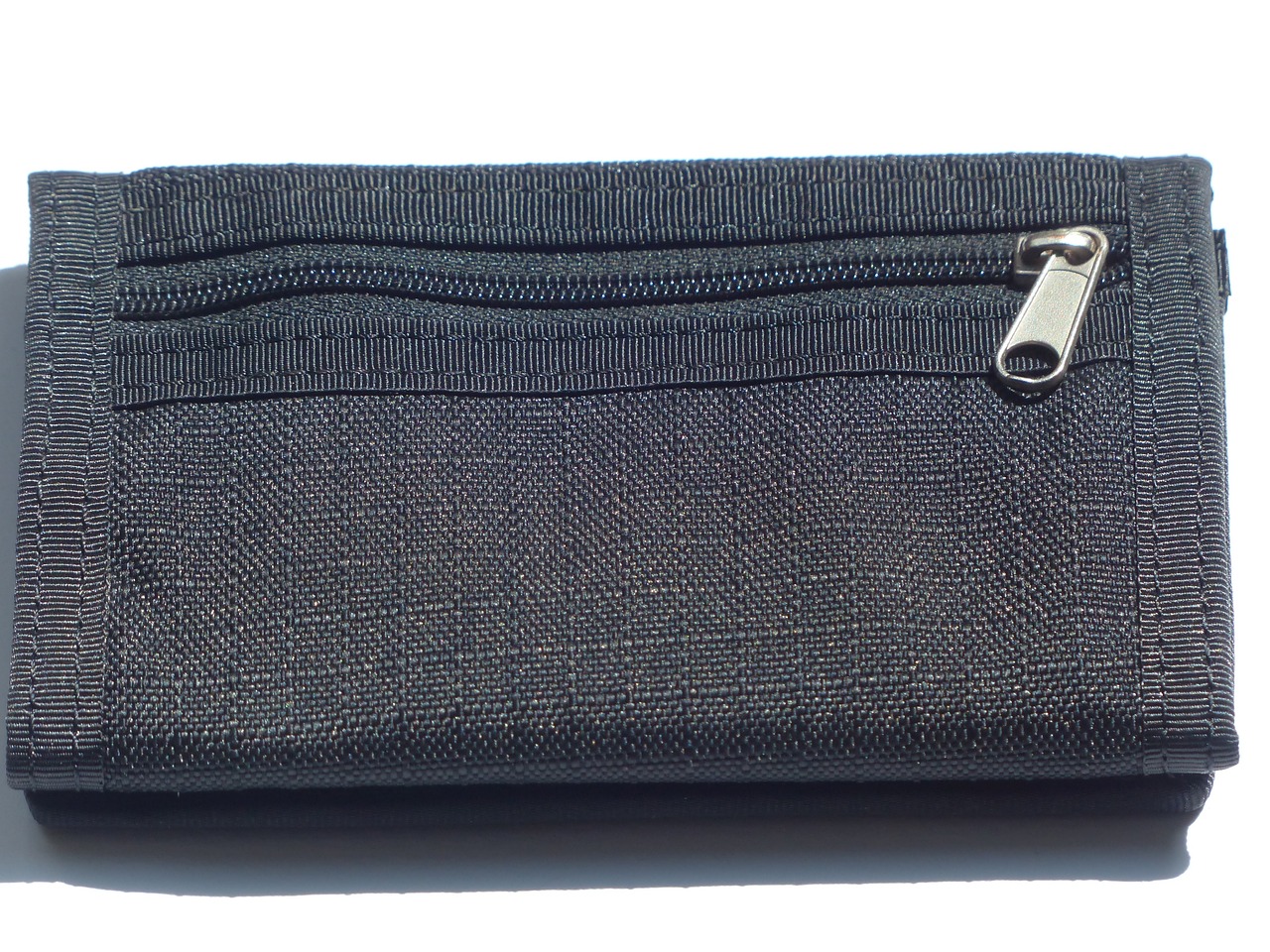
Multi-Currency Wallets
In the ever-evolving world of cryptocurrencies, have emerged as a popular choice for many users. These wallets allow individuals to store a variety of digital currencies in one convenient location, making it easier to manage their assets. Imagine having a single wallet that can hold your Bitcoin, Ethereum, and even lesser-known altcoins, all without the hassle of switching between different wallets. Sounds appealing, right? This flexibility is one of the main reasons why multi-currency wallets have gained traction among crypto enthusiasts.
So, how do these wallets actually work? Multi-currency wallets utilize a single interface that supports multiple cryptocurrencies. This means that instead of downloading separate wallets for each coin, users can simply install one wallet application that caters to various digital currencies. The underlying technology often involves a combination of blockchain integrations and API connections that enable seamless transactions across different coins. However, while the convenience is undeniable, there are some considerations to keep in mind.
One of the key advantages of multi-currency wallets is their user-friendly nature. For those who hold a diverse portfolio, having all assets in one place can simplify the management process significantly. Users can easily track their investments, monitor price changes, and execute trades without the need to juggle multiple apps or interfaces. However, it's essential to choose a wallet that offers robust support for the specific coins you own. Not all multi-currency wallets support every cryptocurrency, which can lead to compatibility issues down the line.
Another aspect worth discussing is the security features of multi-currency wallets. While these wallets can be incredibly convenient, they also present unique security challenges. Since they hold multiple coins, a vulnerability in the wallet's software could potentially expose all assets to risk. That's why it's crucial to look for wallets that offer strong encryption, two-factor authentication, and regular updates. Users should also be aware of the importance of keeping their recovery phrases and private keys secure, as losing access to these can mean losing your investments forever.
In summary, multi-currency wallets offer a flexible and convenient solution for cryptocurrency management. They allow users to store various coins in one place, simplifying the process of tracking and trading digital assets. However, while they provide numerous benefits, it's essential to carefully evaluate security measures and compatibility with your preferred cryptocurrencies. With the right wallet, you can enjoy the best of both worlds: convenience and security.
- What is a multi-currency wallet? A multi-currency wallet is a digital wallet that allows users to store and manage multiple cryptocurrencies in one location.
- Are multi-currency wallets safe? While they offer convenience, the safety of a multi-currency wallet depends on its security features. Always choose wallets with strong encryption and two-factor authentication.
- Can I store any cryptocurrency in a multi-currency wallet? Not all multi-currency wallets support every cryptocurrency. It's essential to check the wallet's compatibility with the specific coins you own.
- How do I choose the right multi-currency wallet? Consider factors like security, user experience, and the specific cryptocurrencies you plan to store when selecting a multi-currency wallet.

Security Features
When it comes to managing your cryptocurrency, security is not just a feature; it’s a necessity. Imagine your digital assets as a treasure chest. You wouldn't want to leave it unlocked, would you? This is where the security features of a multi-currency wallet become paramount. There are several key aspects you should consider when evaluating the security of a wallet:
- Two-Factor Authentication (2FA): This adds an extra layer of security by requiring not just a password but also a second form of verification, such as a code sent to your phone. It’s like having a double lock on your treasure chest.
- Encryption: Look for wallets that use strong encryption protocols. This ensures that even if someone gains access to your wallet, they can't easily read your sensitive data. Think of it as a secret code that only you can decipher.
- Backup Options: Good wallets offer backup options to recover your assets in case of loss or theft. This could be in the form of seed phrases or recovery keys. It’s your safety net, ensuring you can retrieve your treasure if things go awry.
- Open Source Software: Wallets with open-source code allow the community to scrutinize their security measures. This transparency can help identify vulnerabilities before they become a problem. It’s like having a team of experts constantly on guard for you.
Additionally, it’s important to consider how wallets handle private keys. A reputable wallet will allow you to control your private keys rather than storing them on a centralized server. This is crucial because if someone else holds your keys, they hold your assets. Think of it as having the only key to your treasure chest—if someone else has it, they can take everything you have worked for.
Moreover, regular updates and patches are essential for maintaining security. Just like you would update your antivirus software to protect against new threats, your wallet needs to be updated to defend against emerging vulnerabilities. Always check if the wallet provider has a track record of promptly addressing security issues. This is an indicator of their commitment to protecting your assets.
In conclusion, choosing a wallet with robust security features is akin to selecting the safest vault for your valuables. Always prioritize wallets that offer comprehensive security measures, as this will give you peace of mind while navigating the exciting yet unpredictable world of cryptocurrencies.
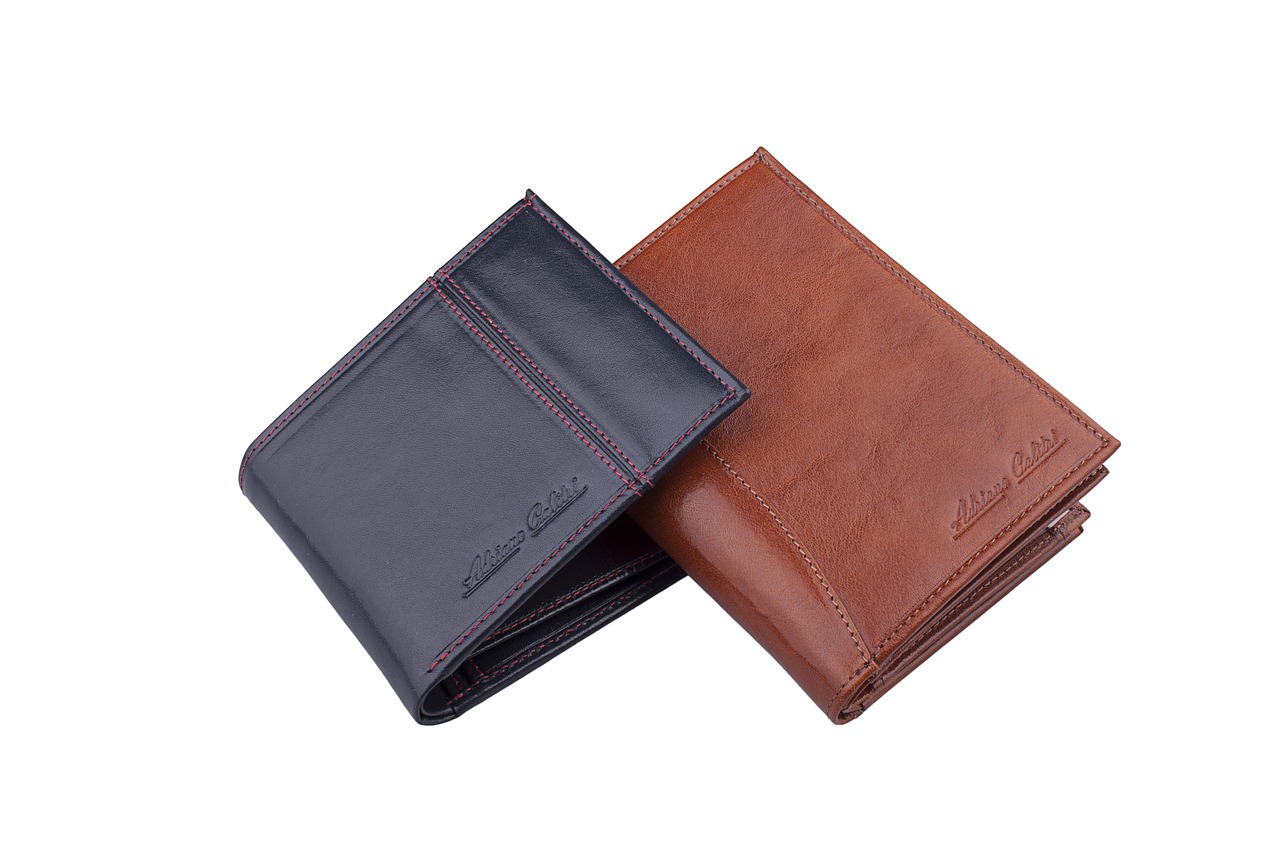
User Experience
When it comes to managing your cryptocurrency, the of a wallet can make all the difference. Imagine trying to navigate a complicated maze while holding onto your precious coins—frustrating, right? A wallet with a seamless user interface can save you from that headache and allow you to focus on what truly matters: your investments. The best wallets are designed with the user in mind, offering intuitive navigation, clear displays, and easy access to features.
One crucial aspect of user experience is the interface design. A clean and organized layout helps users quickly find what they need without feeling overwhelmed. For instance, a well-designed dashboard can provide an overview of your holdings, recent transactions, and even market trends at a glance. Furthermore, a responsive design ensures that whether you're on a desktop or a mobile device, you have a consistent experience. This adaptability is essential in today's fast-paced world, where users often switch between devices.
Another vital component is the ease of transactions. Sending and receiving cryptocurrencies should be as straightforward as possible. A wallet that requires multiple steps or complex confirmations can deter users from making transactions. Ideally, a good wallet should allow you to send coins with just a few clicks, while also providing necessary security checks to protect your assets. For example, some wallets offer a "one-click" send feature that simplifies the process without compromising security.
Moreover, customer support plays a significant role in enhancing user experience. Imagine encountering an issue with your wallet and having no one to turn to for help! A wallet that offers responsive customer service can alleviate concerns and provide peace of mind. Look for wallets that have comprehensive support options, such as live chat, email support, and extensive FAQs. This way, you can quickly resolve any issues that may arise, ensuring that your experience remains positive.
Lastly, user experience is also about educational resources. A wallet that provides tutorials, guides, and tips can empower users to make informed decisions. This is especially important for beginners who may feel intimidated by the complexities of cryptocurrency. By offering resources that explain how to use the wallet effectively, users can navigate the digital landscape with confidence.
In summary, a wallet's user experience is a multifaceted aspect that encompasses interface design, transaction ease, customer support, and educational resources. When choosing a wallet, consider how these elements align with your needs. After all, a great user experience can elevate your cryptocurrency management from a daunting task to an enjoyable endeavor!
- What is the most important feature to look for in a cryptocurrency wallet? The most important feature varies by user, but security and ease of use are often top priorities.
- Are hardware wallets better for user experience? Hardware wallets can offer a secure experience, but their usability may vary based on the device and interface.
- How often should I update my wallet software? It's best to update your wallet software regularly, ideally whenever a new version is released to ensure security and compatibility.

Hardware Wallets
When it comes to securing your cryptocurrencies, are often hailed as the gold standard. These physical devices store your digital assets offline, making them less susceptible to hacking and cyber threats that plague online wallets. Think of a hardware wallet as a safe deposit box for your cryptocurrencies; it keeps your valuables secure, away from prying eyes and digital thieves.
One of the standout features of hardware wallets is their compatibility with a wide range of cryptocurrencies. Most hardware wallets support major coins like Bitcoin and Ethereum, but many also extend their compatibility to a plethora of altcoins. This versatility makes them a popular choice among long-term investors who prefer to hold multiple types of digital currencies. However, it's crucial to check the specific cryptocurrency compatibility of a hardware wallet before making a purchase. For instance, while some wallets may support over a hundred coins, others might only cater to a select few.
Here's a quick comparison of popular hardware wallets and their compatibility with various cryptocurrencies:
| Hardware Wallet | Supported Coins |
|---|---|
| Ledger Nano S | Over 1,500 coins and tokens |
| Trezor Model T | Over 1,600 coins and tokens |
| KeepKey | Over 40 coins |
While the benefits of hardware wallets are clear, they do come with their own set of challenges. For instance, the initial cost can be a deterrent for some users, as hardware wallets typically range from $50 to $200 depending on the brand and features. Additionally, if you lose your hardware wallet without a proper backup of your recovery phrase, you could lose access to your stored cryptocurrencies forever. Thus, it’s vital to keep your recovery information secure and separate from the device itself.
Another aspect to consider is the user experience. Setting up a hardware wallet can be more complex than using a software wallet, especially for beginners. However, most manufacturers provide comprehensive guides and support to help users navigate the initial setup process. Once set up, the user experience can be quite smooth, allowing users to manage their assets effectively with a simple interface.
In summary, hardware wallets offer a robust solution for those serious about protecting their digital assets. With their high compatibility with various cryptocurrencies, enhanced security features, and potential for long-term storage, they are undeniably a worthy investment for anyone looking to delve deeper into the world of cryptocurrency.
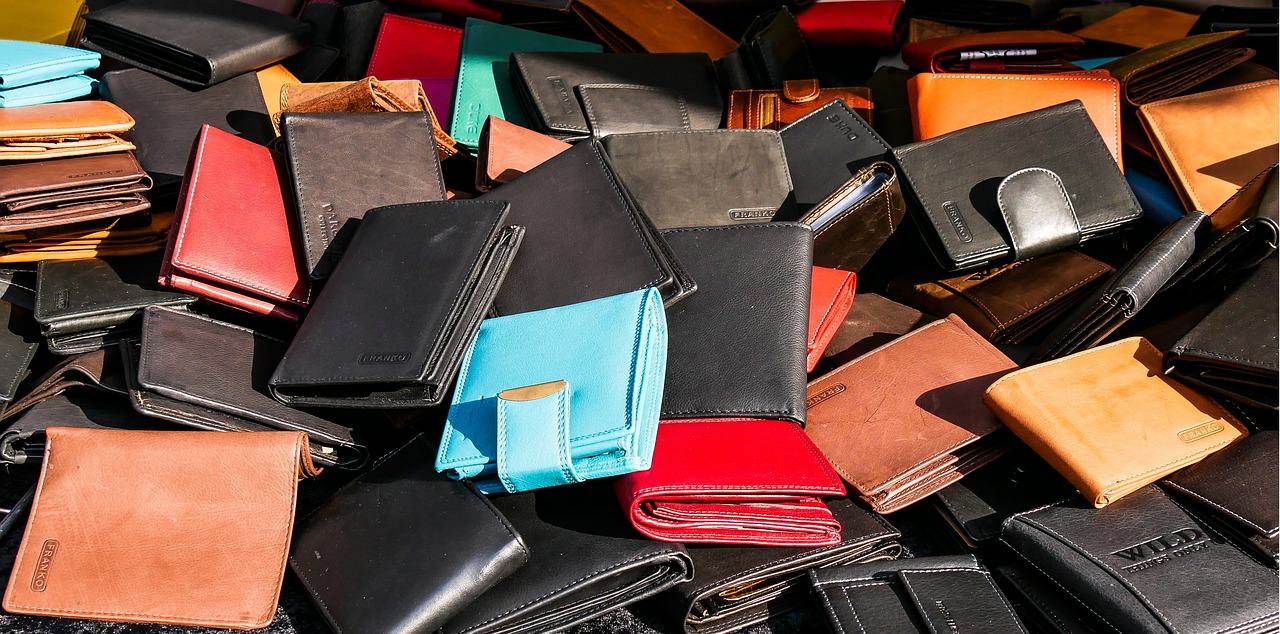
Wallet Compatibility Issues
When diving into the world of cryptocurrencies, one might be surprised to discover that not all wallets play nicely with every coin out there. This compatibility issue can lead to frustrating scenarios where users find themselves unable to send or receive certain cryptocurrencies. Imagine trying to fit a square peg into a round hole; that's what it feels like when your wallet doesn't support the specific coin you want to manage. The implications of these compatibility issues can be significant, affecting not just the ease of transactions but also the overall security of your digital assets.
One common problem is the lack of support for newer or less popular cryptocurrencies. Many wallets, especially those that are multi-currency, may not keep pace with the rapid influx of new coins. As a result, users may find themselves holding coins that they cannot access or transact with, leading to potential losses or missed opportunities. It's essential to do your homework before choosing a wallet. Always check the list of supported coins to ensure that your wallet is compatible with your digital assets.
Another issue arises with token standards. For instance, Ethereum-based tokens (ERC-20 tokens) require wallets that specifically support the Ethereum network. If you try to send an ERC-20 token to a wallet that only supports Bitcoin, you could lose your funds. This is akin to trying to use a credit card in a store that only accepts cash. To avoid such pitfalls, it is crucial to understand the underlying technology of the cryptocurrencies you own and ensure that your wallet aligns with those standards.
Additionally, users often overlook the importance of keeping wallet software updated. Wallet developers frequently release updates that not only add new features but also enhance compatibility with various coins. Failing to update your wallet can lead to compatibility issues, making it harder to access your funds or transact smoothly. Just like keeping your smartphone updated ensures you have the latest apps and security patches, regularly updating your wallet can save you from a world of trouble.
In summary, wallet compatibility issues can create significant hurdles for cryptocurrency users. To navigate this complicated landscape, consider the following:
- Research the wallet's supported coins before committing.
- Understand the token standards of the cryptocurrencies you hold.
- Keep your wallet software regularly updated to ensure compatibility.
By being proactive and informed, you can avoid many of the common pitfalls associated with wallet compatibility and ensure that your digital assets are managed effectively and securely.
Q: What should I do if my wallet doesn't support a specific cryptocurrency?
A: You may need to transfer your coins to a different wallet that supports them. Always ensure to do proper research before transferring any assets.
Q: How can I check if a wallet is compatible with my coins?
A: Most wallet providers list the cryptocurrencies they support on their website. Check this list before choosing a wallet.
Q: What are the risks of using a wallet that doesn't support my coins?
A: Using an incompatible wallet can lead to lost funds or transactions that cannot be completed. Always use wallets that explicitly state support for your specific coins.
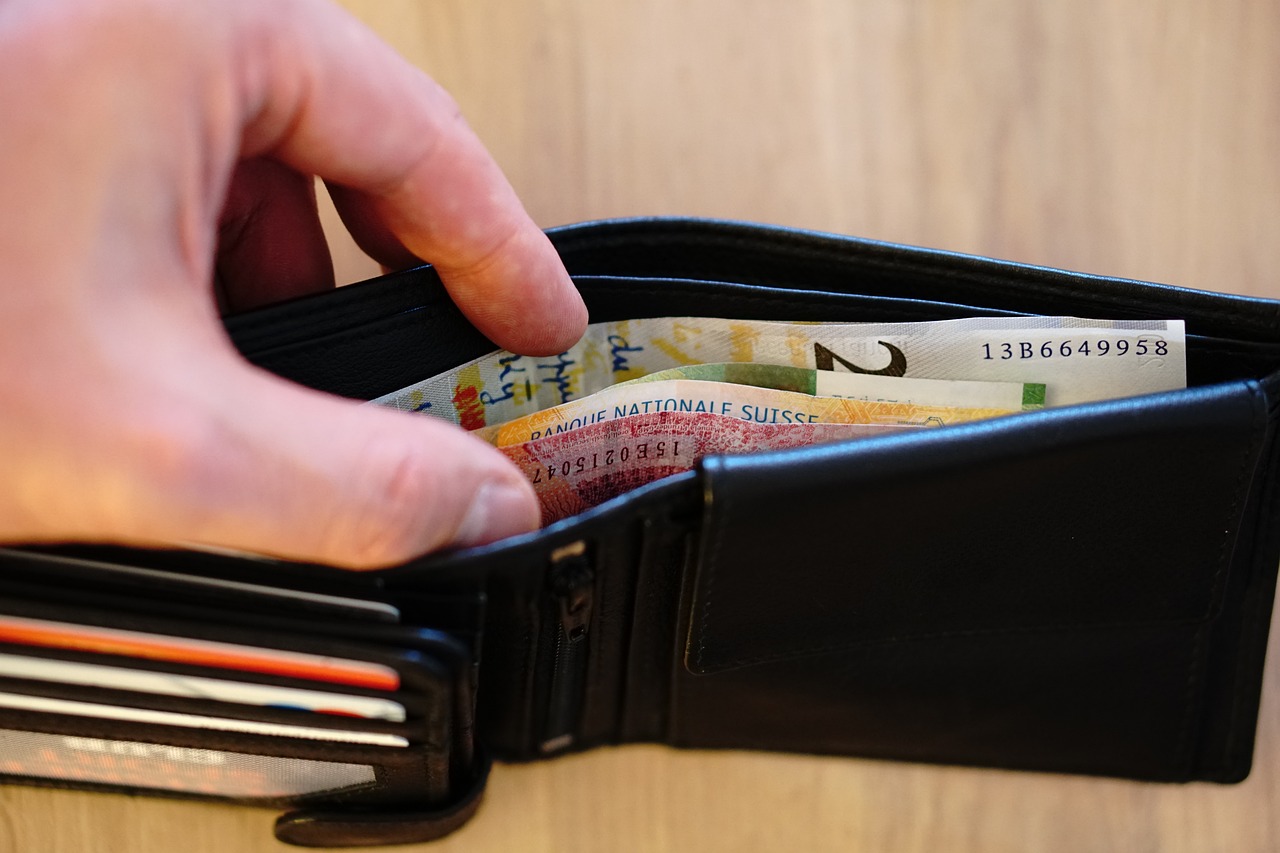
Updating Wallet Software
In the ever-evolving world of cryptocurrency, keeping your wallet software updated is not just a good practice; it's a necessity. Imagine trying to navigate a bustling city without a map—it's chaotic and risky! Similarly, using outdated wallet software can expose you to vulnerabilities and compatibility issues that could jeopardize your digital assets. Regular updates often include critical security patches, new features, and enhanced compatibility with various cryptocurrencies. So, why take the chance?
One of the most common pitfalls for crypto users is neglecting to update their wallet software. You might think, "What’s the worst that could happen?" Well, let’s break it down. Using an outdated wallet can lead to:
- Security Risks: Hackers constantly look for vulnerabilities in older software. An outdated wallet may have exploitable weaknesses that could lead to theft.
- Compatibility Issues: New cryptocurrencies or updates to existing ones may not be supported by older wallet versions, limiting your ability to transact.
- Missing Features: Wallet developers often roll out new functionalities that enhance user experience. By not updating, you're essentially missing out on these improvements.
To avoid these issues, it's crucial to stay informed about your wallet's software updates. Most wallet providers will notify you when an update is available, but it’s wise to check periodically. Here’s a quick guide on how to ensure your wallet is always up to date:
- Enable Notifications: Make sure to turn on notifications from your wallet app to receive alerts about updates.
- Regularly Check the Official Website: Visit the official site of your wallet provider for announcements regarding updates and security alerts.
- Backup Your Wallet: Before performing any update, always back up your wallet. This step is crucial in case something goes wrong during the update process.
- Follow the Update Instructions: Each wallet may have specific steps for updating. Make sure to follow these carefully to avoid complications.
In conclusion, updating your wallet software is like regularly servicing your car. It keeps everything running smoothly and protects you from potential problems down the road. Don’t let complacency put your hard-earned crypto assets at risk. Stay proactive and ensure your wallet is equipped with the latest features and security measures.
Q1: How often should I update my wallet software?
A1: It's advisable to check for updates at least once a month or whenever you receive a notification from your wallet provider.
Q2: What should I do if I encounter issues after updating?
A2: If you experience problems after an update, consult the wallet's support resources or community forums for troubleshooting tips.
Q3: Are all wallet updates safe?
A3: Generally, updates from reputable wallet providers are safe. However, always ensure you are downloading from the official source to avoid malicious software.
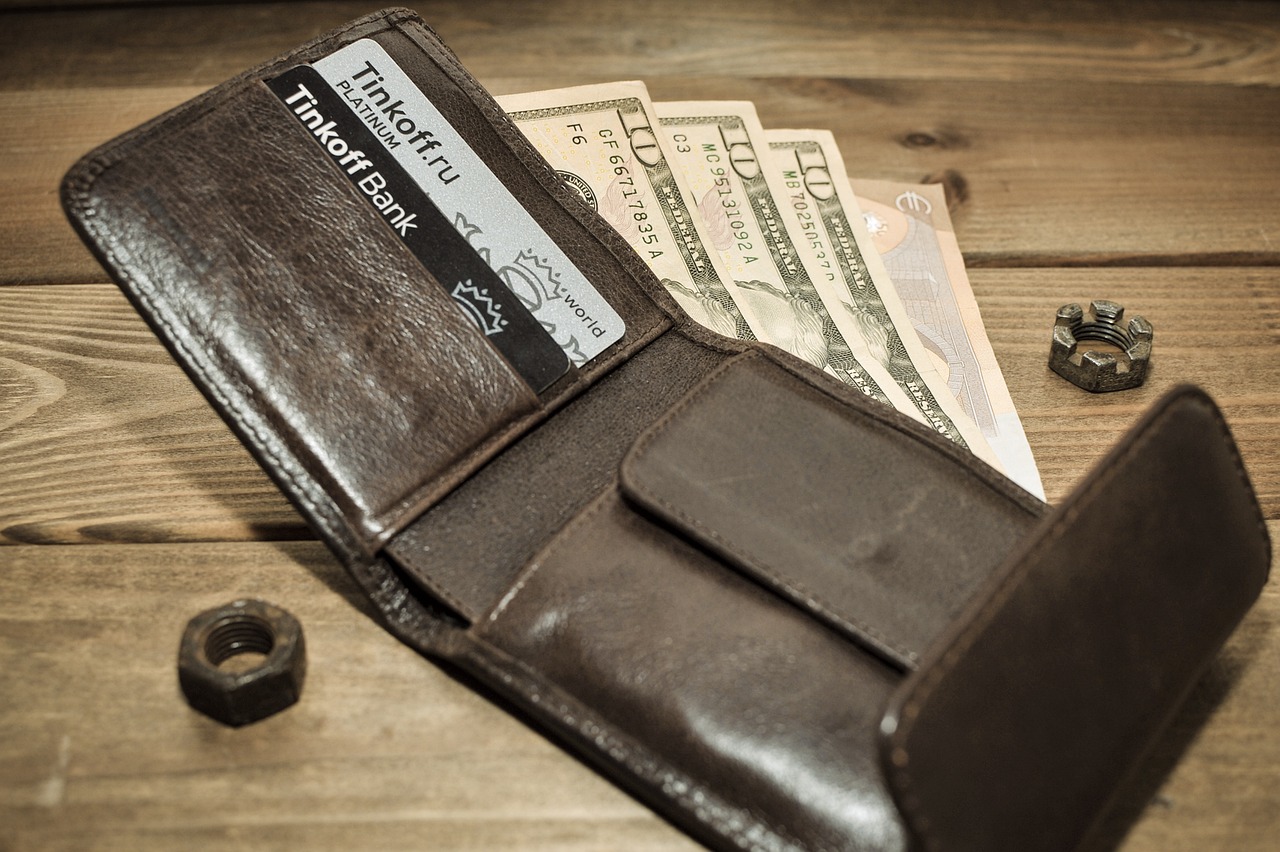
Choosing the Right Wallet
When it comes to for your cryptocurrency, the decision can feel a bit overwhelming. With so many options available, how do you know which one is best for you? Well, it all boils down to understanding your personal needs and how you plan to manage your digital assets. First off, consider the types of cryptocurrencies you own. Are you invested in just a few, or do you have a diverse portfolio? This will significantly influence your choice.
Another crucial factor is the level of security you require. If you’re holding a substantial amount of cryptocurrency, a hardware wallet may be the safest option. These wallets store your coins offline, making them less vulnerable to hacks. However, if you frequently trade or use your coins for transactions, a multi-currency wallet might be more suitable due to its convenience. Think of it as choosing between a safe deposit box and a wallet in your pocket—each serves a purpose, but your lifestyle dictates which is more appropriate.
Additionally, user experience is vital. A wallet should be intuitive and easy to navigate. You don’t want to spend precious time fumbling around trying to figure out how to send or receive coins. Look for wallets that offer a clean interface and perhaps even a mobile app for on-the-go transactions. Many wallets also come with customer support, which can be a lifesaver if you run into any issues.
Here are some key points to consider when making your decision:
- Compatibility: Ensure the wallet supports the cryptocurrencies you own.
- Security Features: Look for wallets that offer two-factor authentication, encryption, and backup options.
- User Experience: Choose a wallet that is easy to use and has a positive interface.
- Cost: Some wallets are free, while others charge fees. Make sure you understand any costs involved.
Lastly, don’t forget to read reviews and do your research. The cryptocurrency landscape is ever-evolving, and staying informed can help you make the best choice. By taking the time to evaluate your options, you’ll be able to find a wallet that not only meets your needs but also enhances your overall experience in the crypto world.
Here are some common questions people ask when choosing a cryptocurrency wallet:
- What is the safest type of wallet? Hardware wallets are generally considered the safest option due to their offline storage.
- Can I use multiple wallets? Yes, many users opt for multiple wallets to manage different cryptocurrencies or for security purposes.
- Are there fees associated with wallets? Some wallets may charge transaction fees or service fees, so it's essential to check before selecting one.
- How do I recover my wallet if I lose access? Most wallets provide a recovery seed phrase that can be used to restore access if lost.
Frequently Asked Questions
- What is wallet compatibility?
Wallet compatibility refers to the ability of a cryptocurrency wallet to support various types of cryptocurrencies. Different wallets are designed to work with specific coins or a range of coins, affecting how users manage their digital assets.
- What are the different types of wallets available?
There are several types of wallets, including hardware wallets, software wallets (desktop and mobile), and paper wallets. Each type has its own features and levels of security, catering to different user needs.
- What are coin-specific wallets?
Coin-specific wallets are designed to support only one type of cryptocurrency. While they may offer enhanced security and features tailored to that coin, they lack the flexibility of multi-currency wallets that can store various cryptocurrencies.
- What are the advantages of multi-currency wallets?
Multi-currency wallets allow users to manage multiple cryptocurrencies in one place, offering convenience and flexibility. They often come with user-friendly interfaces and can save time for those who actively trade or hold various digital assets.
- How important is security in a multi-currency wallet?
Security is crucial when selecting a multi-currency wallet. Look for features like encryption, two-factor authentication, and backup options to protect your investments from potential threats.
- What should I consider when choosing a wallet?
When choosing a wallet, consider factors such as compatibility with the cryptocurrencies you own, security features, user experience, and ease of access. It's essential to find a wallet that fits your specific needs and preferences.
- What are the common compatibility issues users face?
Common compatibility issues include wallets that do not support certain cryptocurrencies, leading to transaction failures or loss of access to funds. Users should ensure their chosen wallet is compatible with all the coins they plan to hold.
- Why is it important to update wallet software?
Keeping wallet software updated is vital for maintaining security and compatibility. Regular updates can fix bugs, improve performance, and ensure that your wallet can handle the latest cryptocurrency protocols.

